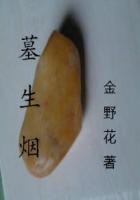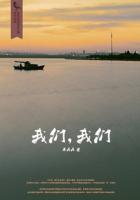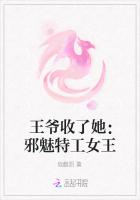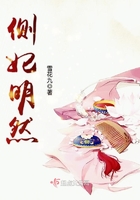“不,我必须要玫瑰花。”他说,“我妈妈去年生病时,十分虚弱,而我没有花很多时间和她在一起。我想送她一些特别的东西。那一定是玫瑰花,因为妈妈最喜爱玫瑰。”他的态度很坚决。
店员抬头看着约翰,只是不住地摇头。约翰内心深处被男孩的话语触动了,他是多么迫切地想要得到那些玫瑰花。约翰的生意一直不错。于是他看了看店员,然后小声对她说自己愿意为男孩买玫瑰花。
店员看了看男孩,说道:“好吧,我收你6美元,给你一打玫瑰花。”男孩高兴地差点儿要跳起来。他接过花,然后跑出了花店。看到小男孩如此兴奋,这额外的35美元没有白花。
约翰订购了自己要的花,一再叮嘱店员确认给母亲的花中要附上一张便条,写上他有多爱她。开车离开花店时,他的心情出奇的好。因为红灯,他在离花店约两个街区的地方停了下来。就在等红灯的过程中,他看见那个男孩正走过人行道。约翰目送男孩穿过大街,经过两扇巨大的门进入了一个公园。突然,他意识到那不是公园,而是一块墓地。他还能看到男孩在大门那儿转过身,沿着篱笆向前走去。
绿灯亮了,约翰慢慢地把车开过十字路口,停在路边。他一冲动下了车,开始沿着篱笆跟着男孩。那个男孩来到了篱笆围着的墓地,约翰与他保持着三四十步的距离,在人行道上跟着他。男孩在一块小小的墓碑前止住脚步,然后跪了下来。他小心翼翼地将花放在坟上,然后开始哭泣。约翰觉得自己是一个入侵者,但他又不忍离开。他看着男孩因哭泣而上下起伏的身体,听着他低低的哭声。
男孩夹杂着哭泣的话语传到约翰的耳朵里:“妈妈,哦,妈妈,为什么我没告诉你我有多爱你?为什么我没有再一次告诉你?上帝,求你找到我妈妈,告诉她我爱她!”
约翰泪流满面地转过身来,走回自己的车里。他飞快地开着车回到那家花店,告诉店员他要亲手把花交给妈妈。他想要亲自把花送给妈妈,并再一次告诉她,他有多爱她。
田间之旅
Field Trip
伊万·盖尔福德·布雷克 / Evan Guilfore-Blake
My first school was the storied one-room schoolhouse. An old whitewashed building with a red roof and a vane on the peak, it sat at the top of an unpaved hill surrounded by farmland(including a barn rife with livestock)in a then-unin- corporated area of Urbana, Ilinois. The school housed all six primary grades and, as I recall, there were about thirty-five of us, mostly very young, although we ranged in age, of course, up to twelve or thirteen.
The year was 1953, and I was six years old, a first grader, and the son of a Ph. D. student at the University of Ilinois. My peers and the upper graders were farm kids or children of undergrads taking advantage of the GI Bill. Some were just too poor to live in the city, which would have qualified them for a city school. (I suspect my parents dismissed the relevance of first grade, since most of my education came at home, at their hands, anyway.)
The sole teacher in that school was as classic as the building itself. Mrs. Knapp was a schoolmarm by profession and she' d been doing it, she said, all her life. By then, I' d guess, that meant thirty-five or forty years on the job. She had to have been in her sixties:white hair in perfect array. Petite; memory puts her at barely five feet, perhaps one hundred pounds. Bony, with tightly drawn skin and sharp features. Prominent knuckles. Perfect teeth. She brushed after lunch and made sure we did, too.
She handled our diverse intellects with perfect aplomb, guiding those of us who could read well through the pleasures of Stevenson' s poetry and Mr. Popper and those who struggled with reading through the joys of Dick and Jane. If every grade was a different country, Mrs. Knapp was fluent in the six languages we spoke, always having appropriate conversation to offer on whatever subject—academic and not—that our curiosity was heir to. She knew, for example, more about baseball and its history than my father did and was always ready to argue the merits of Pee Wee Reese (her favorite shortstop) against Chico Carrasquel (mine).
The one Mrs. Knapp incident that will always remain engraved in my memory didn' t happen at school, however. It happened on a deserted country road that divided corn-fields on the afternoon of the last day of that, my first full-fledged school year. To celebrate the beautiful weather, she' d taken us on a field trip, literally, through the bright yellow and green of corn and wheat stalks that were taller than I was (and than she was, too) but still two or three months shy of their harvest.
We wandered, as large groups of children are wont to do, our eyes catching with fascination on every bug and bird and leaf, every one of which, unfailingly, Mrs. Knapp had explanations for. We trekked along utterly untrafficked gravel and dirt roads that had been bulldozed just wide enough for tractors or a single car to travel. There were no trees: The Ilinois prairie land was flat, and we could see only the blue of the horizon and an occasional farmhouse rooftop beyond the fields of grain. We ate our lunch sandwiches along a roadside, listening to the rustle of the wind through the gently waving crops. the cries of the crows, the chirrs of the crickets and beetles.
After lunch we walked more. Now, though, the trip had become repetitious—more fields, more crops, more birdcalls—and I, certainly among others, was becoming impatient. Then, it happened: There, in the absolute middle of nowhere(straight out of what, some years later, I would think of as The Twilight Zone or a Stephen King novel), on the side of another single-lane road hundreds of yards from anything that resembled civilization, stood an ice cream stand. Nothing fancy, just a wooden counter six or eight feet wide, five feet high, two feet deep, with poles supporting a wood sheet that served as sun cover for the grizzled, but smiling, middle-aged man who stood behind it. The words"Ice Cream—10 Flavors" were painted prominently on the front.
The man and Mrs. Knapp greeted each other as old friends. She turned to us and said each of us could have an ice cream cone, any flavor we wished, her treat. Our enthusiasm was, naturally, boundless, and debate over whether to stick to the known delights of chocolate or vanilla or whether to experiment with the exotic Rocky Road or Blueberry raged among us. But we each settled on something, and the man scooped large scoops into waffle cones and handed them out. We savored and devoured.
Then he asked Mrs. Knapp, " What would you like?" I like to think there was a twinkle in his eyes as he did and that what followed was a ritual between them, although the few kids who' d attended Mrs. Knapp' s classes in years before hadn' t been to the stand.















